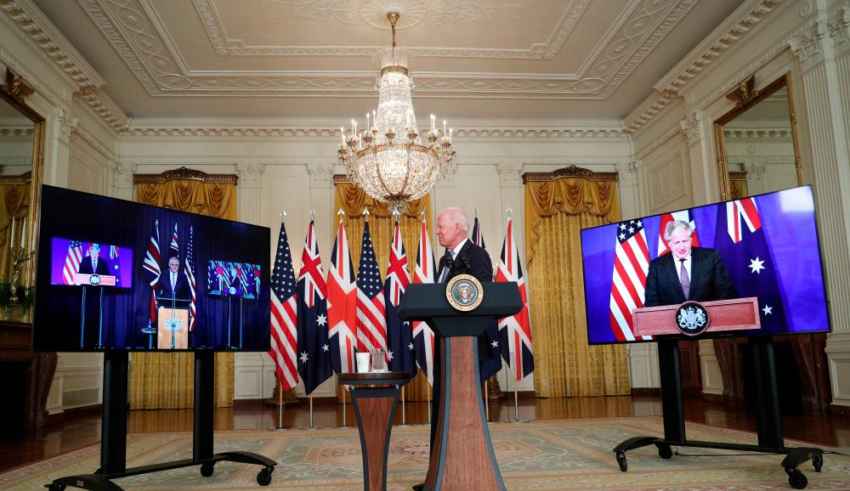
On 15 September, Australia, the United Kingdom and the United States announced the formation of a partnership called “AUKUS”, with the aim, among other things, of providing the Australian Navy with nuclear-powered submarines over the next few decades. The trilateral security pact is an excellent opportunity for Australia to strengthen its military capability to deal with China’s growing maritime activities in the South China Sea. With nuclear-powered submarines, Australia will be able to conduct sustained operations in the South China Sea[1]. For Australia, the acquisition of these military capabilities will enable it to manage the transition to the acquisition of future nuclear-powered submarines, and for the Australian government this issue should be central to future consultations within AUKUS. Furthermore, the United States and Australia have indicated that they will increase engagement in joint military exercises and that Washington may have greater access to Australian infrastructure to facilitate its military operations in the region.
How AUKUS will influence the emerging regional order in the Indo-Pacific depends on whether it remains essentially a nuclear submarine programme or expands its areas of cooperation into deeper integration of defence and security-related technologies, such as cyber, AI (artificial intelligence) and additional submarine capabilities. All three signatory countries of this pact appear to be gaining significant benefits in terms of international geopolitical influence in the region, thus acquiring a potential leading role in the regional order in terms of military stability, where China is currently the most dominant.
As for the United Kingdom, it appears that British submarines will use an Australian base in the future, which will help extend the UK’s submarine operations in the region. Britain’s involvement in Australia’s nuclear submarine programme will give it both technological and industrial benefits[2].
This trilateral agreement, presented by US President Joe Biden as responding to “the imperative of ensuring peace and stability in the Indo-Pacific over the long term”, serves the unstated but obvious purpose of counterbalancing an increasingly powerful, and sometimes aggressive, China in its neighbourhood and on the international scene. For the US, this trilateral security pact seems to have a clear strategic motivation to allow Australia to operate nuclear submarines in the Indo-Pacific region as the number of available US submarines is limited. This will therefore strengthen the US military position vis-à-vis China in the Western Pacific. The benefit of this pact for the US could outweigh any potential risk from a possible negative impact on the international non-proliferation regime. A further military advantage for the US in the region comes from the fact that US submarines will, in the future, be able to use a base in Australia, either the existing RAN Stirling base near Perth or a new facility near Darwin, which is much closer to the South China Sea. In the context of dispersing resources in the region in view of vulnerability against China, the US wanted to secure a base from which it could operate in the region[3].
However, the joint development of these vessels would raise considerable financial, technological, human and timing issues (nuclear-powered submarines are only expected to be available by 2040) as well as non-proliferation issues since it is unclear how the AUKUS signatory countries intend to address these issues[4]. The United States, the United Kingdom and Australia have 18 months to work out the details of the agreement and what kind of submarines, reactors and uranium fuel will be needed. Many doubts and questions also arise about where to base the submarines, what new infrastructure will be needed, how maintenance will be conducted, how nuclear fuel will be handled and how crews will be trained. It seems little time to define issues that in many ways affect the world’s geopolitical balance and not just that of the Indo-Pacific region[5].
The announcement of the trilateral partnership between Canberra, Washington and London caught international actors unprepared and led to a particularly serious crisis with Paris as well because it saw France lose an important agreement it had had with Australia since 2016 for the supply of 12 conventionally powered submarines. Moreover The international balances seem to have been shaken by this trilateral pact. It is therefore legitimate to wonder about the consequences that could result from the creation of AUKUS which seems to threaten international non-proliferation efforts and regional stabilities.
[1] Euan Graham, “Australia’s well-kept nuclear-submarine secret,” Analysis, International Institute for Strategic Studies (IISS), 17 September 2021
[2] Sidharth Kaushal, “What Does the AUKUS Deal Provide its Participants in Strategic Terms?” Commentary, Royal United Services Institute for Defence and Security Studies (RUSI), 21 September 2021
[3] Tsuruoka, Michito. “AUKUS, Japan and the Indo-Pacific: strategic rationales and challenges.” (2021)
[4] https://thebulletin.org/2021/09/the-new-australia-uk-and-us-nuclear-submarine-announcement-a-terrible-decision-for-the-nonproliferation-regime/
[5] Perot, E. (2021). The Aukus agreement, what repercussions for the European Union? The Robert Schuman Foundation – European Issue, (608)
By The European Institute for International Law and International Relations.















